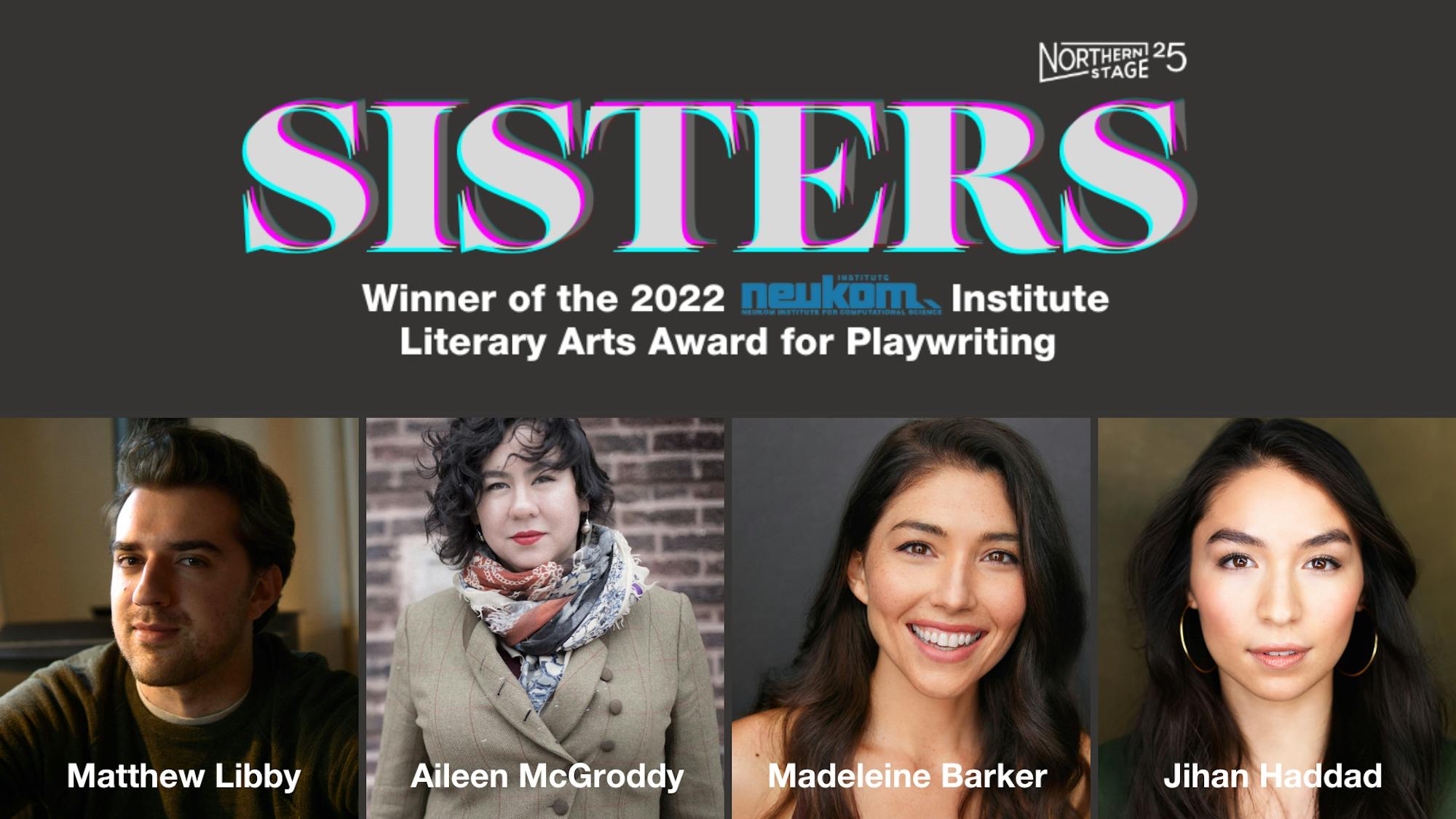Matthew Libby’s “Sisters” is a story about family dynamics told by two sisters, Matilda played by Jihan Haddad and Greta played by Madeleine Barker. However, Greta is not human, but, instead, artificial intelligence. The story follows Matilda’s life, development and coming of age, while simultaneously, we see Greta’s development as a computer through her interaction with her sister. The play explores how the paths of the sisters intersect, eventually diverge and reach resolution in becoming one again.
“Sisters” has won the 2022 Neukom Institute Literary Arts Award for Playwriting. Developed in 2018 by the The Neukom Institute for Computational Science at Dartmouth, this award program aims to celebrate the intersections between art, science and real life. Winning the award comes with a $5,000 stipend and a weeklong workshop in collaboration with Northern Stage, a nonprofit professional theater company located in White River Junction.
Isaiah Brown ’23, who is currently participating in the Experiential Learning term collaboration between the Dartmouth theater department and Northern Stage, is working as a workshop assistant for “Sisters.” Brown describes “Sisters” as a piece about love, growth, doubt and acceptance.
“[‘Sisters’] explores the human condition, particularly, relationships and the way relationships are affected by personal journeys and the ways we find our own purposes,” Brown said.
The sci-fi component of “Sisters” is inspired not only by Libby’s background in cognitive science, but his deep interest in human and technological engagement in a modern world, according to Libby. More specifically, Libby questions what types of human processes can be replicated or automated by machines. The play explores a question that he has grappled with for a long time.
“It’s a story that questions what it means to be human in an increasingly technological world,” Libby said. “Specifically, it’s a play about the finiteness of human life when put up against the infinity of the technology that we create and interact with every day.”
Although this piece is science fiction, Brown explains that there are many times in which the characters and situations will feel familiar to the audience.
“There is a confrontation scene, and I think it’s just so beautifully written. These characters are so well developed that when confrontation begins to happen and the relationship begins to unfold, it all makes sense and it hits hard,” Brown said. “I think this scene is just so classic, and it’ll feel familiar to anyone watching.”
Libby began working on “Sisters” a couple years ago but put the play to the side after writing the first scene. After graduating from his MFA program at NYU, Libby said he felt compelled to write a piece that was adaptable to different environments.
“I had this real desire to write something that you could do in a theater at Northern Stage, for example, or in a literal lecture hall at Dartmouth, and it still has equal power,” Libby said.
According to Libby, “Sisters” does just that. With an intimate cast of only two, no set and adaptable technical aspects, Libby anticipates a fun week of workshopping and looks forward to seeing his piece come to life.
Under the direction of Aileen McGroddy, a director at Northern Stage, “Sisters” will undergo a weeklong workshop. This period allows for collaboration with other creators involved and serves as an opportunity for the playwright to experiment with what is written in the script and how the actors interpret it.
According to McGroddy, this process is different from big production shows in which staging, designs and visuals would be of concern. Instead, her job is to support the work of the playwright.
“What’s high priority is trying as many things as we can with this grant,” McGroddy said. “Let’s make space for conversation about ideas of the script and make sure we’re really reckoning with every work that’s on the page to give the material of the script the most robust experience it can get.”
Brown said he is excited to assist Libby and see what can happen in a short span of time with new work.
“I think the exciting thing here is that this is a brand new piece, and we’re going to be getting it onto its feet,” Brown said. “New discoveries and changes can happen, and I’m excited to witness firsthand in real time what the journey of the show is going to be.”
The Neukom Institute Literary Arts Award in Playwriting has been on Libby’s radar for several years. The award is specifically for plays that answer the question of what it means to be human in a computerized world — a question that Libby has been toying with for years.
“I feel very, very lucky,” Libby said. “I was hoping our paths would cross eventually because it seemed like such a good fit, and I’m really thrilled that it did.”
“Sisters” is coming to the Dartmouth community with two public readings: the first in the Filene Auditorium on Jan. 12 at 7:30 p.m. and the second at the Byrne Theatre in the Barrette Center for the Arts in White River Junction on Jan. 13 at 7:30 p.m, hosted by Northern Stage.




